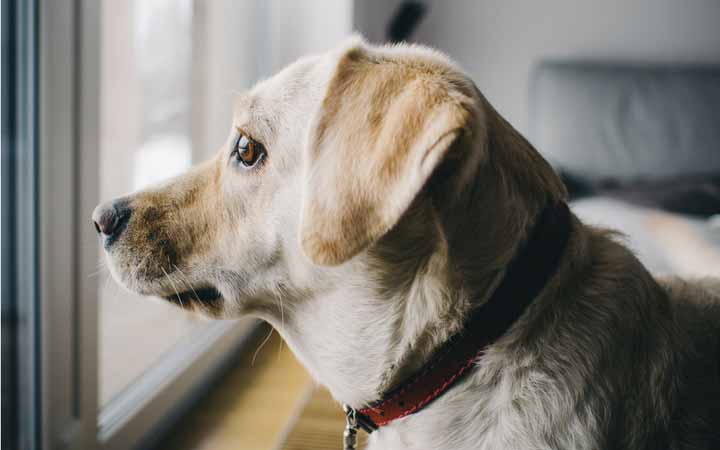Take me home
Adopting a dog or cat should be a joyous occasion. An animal is saved from near-certain death or chronic homelessness, and our human lives are richer for it.
Then why do some newly adopted pets experience fear, anxiety, or aggression when introduced to their new homes?
When a new pet enters your home she is bombarded with unfamiliar and unusual sights, sounds, and smells. There are new people, and perhaps new animals as well. Many dogs and cats have been re-homed multiple times. This can make a new home both confusing and frightening.
It can take weeks – even months – for an adopted animal to feel secure in her new surroundings.
Many factors contribute to how quickly and how well an animal adapts. These factors include her age, how many times she was adopted and surrendered, resident animals who may be in the home, and how her guardians facilitate the homecoming process.
Memories
It is believed that animals have the capacity for long-term memory, though context is important. Both dogs and cats appear to have excellent memories where food is involved. The types of memories that are formed around food may matter as well.
Many sheltered animals are victims of neglect, still others found as strays. Some of them had to fend for themselves just to survive, and these are potent memories.
While rescuing a helpless, starving animal undoubtedly saves his life, there may still be invisible wounds of the life he left behind. Some animals display food bowl aggression when a person touches their food dish, or is in the vicinity of their bowls.
Resource guarding takes many forms. It can include food, toys, even people.
It is important to work with a qualified trainer or behaviorist to address this issue early and reduce potential conflicts between you and your pet. Further, you want to reduce pet stress at home so that your adopted pet can lead a more fulfilling life.
Not all stressors involve food or other resources, however.
Loud noises, new people, and new smells cause some pets to become highly stressed. Their anxiety may express itself in a number of ways, including aggression or fear. Your pet may begin exhibiting strange behaviors such as frequently licking his lips, avoiding eye contact, or excessive drooling.
These are among various signs that your pet may be anxious, and time to consult a professional to help reduce pet stress at home.
Shelter me
It is important to reassure a frightened pet, but not to smother her.
Make sure that your dog or cat has a safe place where she can go and be undisturbed by other people and pets in your household.
This place should never be used as a punishment, whether it is a crate, a pet bed, or a small room with pillows and blankets. It should always be somewhere that your pet wants to go and enjoys spending time.
Reduce pet stress at home for animals who are sensitive to thunderstorms and other loud noises. One method is to create a cocoon of sound.
While you might be tempted to tune your pet into your favorite internet radio station – resist. Dogs and cats have species-specific taste in music, and in the case of dogs their musical tastes may even vary by the size or breed of the animal.

Thundershirts are another method for managing external stressors; they are customizable vests that mimic a hugging sensation. While the name suggests they are for use only during storms, they can be used during any situation in which your dog or cat experiences high anxiety.
The nose knows
Aromatherapy is not just helpful for humans. It makes a huge difference for animals as well, but should only be used in consultation with your pet’s veterinarian.
However, even essential oils, scents, and formulations that are deemed safe for pets can be toxic if not administered properly. Just because they are natural does not mean that they are harmless. When used correctly, some pet guardians believe that they have a calming effect in reducing pet stress at home.
Catnip and chamomile are among other safe, effective herbs for cats. They are easily available, inexpensive, and as with any remedy should only be used under the direction of your veterinarian.
For more stubborn cases of anxiety some pet guardians turn to nutraceuticals – dietary extracts that are believed to have medicinal benefits.
Many veterinarians are divided on the benefits of these supplements for pets who already have a balanced diet, but do recommend them for dogs and cats who have specific nutritional deficiencies.
Separation anxiety
Separation anxiety is a unique type of stress that some animals experience when their guardians leave them alone. It can occur not only when you leave your home, but even when you are simply in another room and out of your pet’s sight.
While you may think it is cute when a newly adopted dog follows you everywhere, it can be a sign that she is unable to comfort herself in your absence.
It is important to establish a healthy bond with your pet – one that allows you to depart for work, errands, etc., without causing her undue stress.
See our article on separation anxiety for specific tips.
The healing power of touch
When we are scared, anxious, or just plain tired, there are few things that feel as reassuring as being touched by someone we love. Our pets feel the same way. They respond to the power of touch not just through normal petting, but through therapeutic massage that can be done to reduce pet stress at home.
Massage is a time-worn technique to calm anxious dogs and get active ones ready for their day. Cats enjoy a particular form of massage known as skin rolling, which is performed almost as it sounds.
Pet massage has the added benefit of helping you and your pet form a closer bond – and helping you to relax as well.
Be patient and prepared
Regardless of what may cause your pet to feel anxiety, fear, or aggression, there is never a one-size-fits-all answer. It may take some trial and error to help your dog or cat overcome her issues. After all, your pet is much like you; she responds to stimuli and events in her environment.
It will take time for her to learn new, healthier responses to situations that may have elicited an unwanted response in the past.
But the best way to reduce pet stress at home is to be patient and to be prepared. Make sure that your entire family is on board before you adopt a pet.
Have your finances – not just your physical home – in order before you bring home a dog or cat.
Remember that companion pet adoption should never be an impulse decision. A pet is a family member, and is a lifetime commitment.










Really helpful & informative article….
Very informative love it